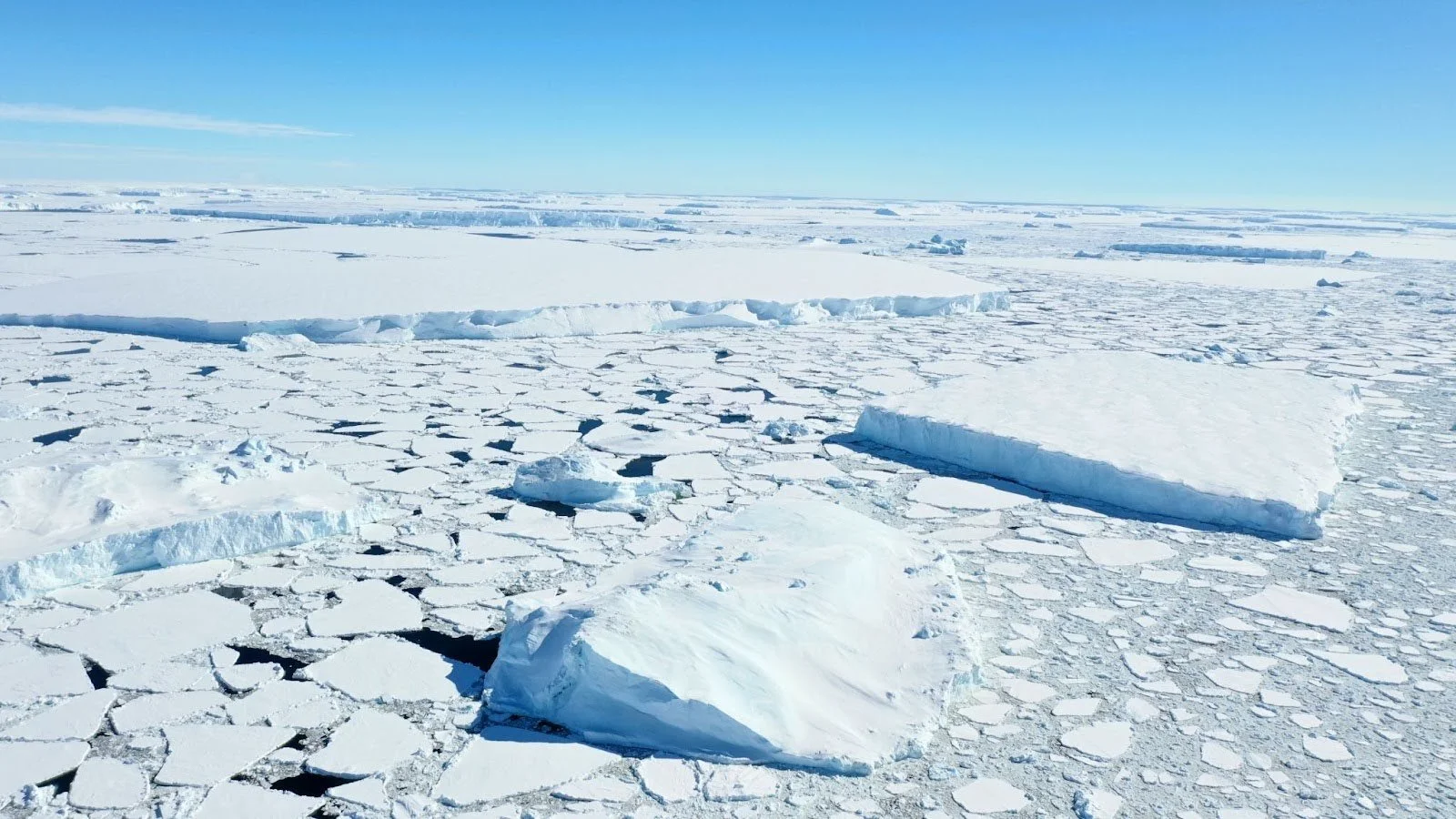
Bridging the gap between AI and observations for sea ice forecasting: a new working group (ORCAS)
Artificial Intelligence (AI) is transforming environmental forecasting worldwide, but applying it to the complex, rapidly changing polar regions, the Arctic and Antarctica, remains a major scientific challenge. AI is revolutionising numerical weather prediction by providing tools that are often better performing, significantly faster, and more energy-efficient than traditional physics-based models. Major developments, such as ECMWF’s AIFS and Google’s WeatherNext, have demonstrated that AI can match, or even exceed, the predictive skill of traditional numerical weather prediction systems. However, polar regions are characterised by sparse observational coverage and intricate climate processes, making them difficult to model accurately. The growing demand for AI applications in polar regions, combined with their unique observational and physical challenges, calls for a comprehensive, community-driven effort.

Season's Greetings from PCAPS
As 2025 draws to a close, we wish to take this opportunity to reflect on a year of good progress and growing international collaboration. Over the course of this year, PCAPS has brought together researchers, forecasters, operators and other stakeholders from around the world to advance environmental forecasting capabilities in both polar regions. We extend our warmest Season's Greetings to the entire PCAPS community.

Meet the PCAPS SG: Andrew Orr on understanding climate processes and change in Antarctica
This month’s Meet the SG blog post features PCAPS SG member, Andrew Orr. Andrew is a Climate Scientist at the British Antarctic Survey and in addition to being a PCAPS SG member, is the co-lead of the PCAPS Processes Task Team. He researches the processes responsible for climate change and variability in the polar regions, and recently, has been investigating extreme weather events in the Antarctic and Himalayan region, which despite their high impact, are poorly understood.

Reflections on Actionable Science for IPY-5 (2032–33)
As we look ahead to the next International Polar Year in 2032–33 (IPY-5), Øystein Hov from the Norwegian Meteorological Institute, has been thinking increasingly about one of its core ambitions: the commitment to produce actionable insights. This phrase appears frequently in planning documents, but what does it really mean in practice? And how can IPY-5 ensure that our collective scientific effort leads not only to new knowledge, but to outcomes that matter for people, communities, and operations?

Into the Arctic night: Scientists gear up for a groundbreaking mission in Inuvik
PONEX is a surface and aircraft campaign designed to explore atmospheric physics and chemistry in the Canadian Arctic in polar night and polar sunrise conditions. This is the first experiment of its kind.

PCAPS Horizon Scan: key social and behavioural science questions for advancing polar forecast information services
What does the future hold for the polar regions - and for the people who live and work there? While we don’t have a crystal ball, we do have rigorous research methods that can help us look forwards and to plan pathways to the future scenarios we would like to see. As climate change intensifies pressures on polar socio-ecological systems, PCAPS seeks to bridge the gap between the forecast information that is available and its effective application by end users. Currently, PCAPS is conducting a Horizon Scan to systematically identify and prioritise key scientific questions related to the relevance, actionability and impact of polar environmental forecasting services.

Closing the gap: A new ocean-atmosphere observing system for Svalbard's changing climate
The Isfjorden Weather and Ocean Observing System (IWOOS) is a collaborative project dedicated to establishing a multi-platform environmental monitoring system in the rapidly warming Isfjorden region of Svalbard, Norway. Led by PI Marius O. Jonassen at the University Centre in Svalbard, the project involves key partners from the Norwegian Meteorological Institute and the University of Helsinki. IWOOS is funded by the Svalbard Integrated Arctic Earth Observing System and supports PCAPS' goals by improving the accuracy and utility of Arctic environmental forecasts, providing critical data for safer operations in a rapidly changing region.

PCAPS at the Svalbard Science Conference 2025
The 5th Svalbard Science Conference, held every 2 years, took place in Oslo, Norway, October 28 - 29, 2025. Scientists around the world gathered to discuss research in and about Svalbard. Among the speakers were PCAPS co-chair Jørn Kristiansen, DON4FS Task Team co-lead Malte Müller, and Verification Task Team members Cyril Palerme and Morten Køltzow.

Meet the PCAPS SG: Pranab Deb on understanding processes that drive high-impact extremes in Antarctica
This month’s Meet the SG blog post features PCAPS SG member, Pranab Deb. Pranab is an Assistant Professor at the Indian Institute of Technology Kharagpur (IIT) Kharagpur and the founder of the Polar Climate Modelling Group - India’s first research group dedicated entirely to polar climate modelling. His ongoing research on high-impact extremes in Antarctica plays a pivotal role in achieving PCAPS’ objectives of furthering our understanding of dynamic changes in the polar regions and their impacts on communities globally.

Reflections from the WWRP-PCAPS Endorsed Research School on the Arctic Ocean Climate System
The Swedish Polar Research Secretariat (SPRS) undertook a six-week Research School with 21 graduate and doctoral students onboard the Swedish research icebreaker Oden, from 10 August to 18 September 2025. This was the first of three WWRP-PCAPS Endorsed research schools during 2025-2027. This project was undertaken with some financial support from the Government of Canada through the federal Department of Environment and Climate Change. On the Canada-Sweden Arctic Ocean 2025 expedition, the Oden traversed from the Fram Strait, across the North Pole and approximately followed the E/W 180° meridian south to almost 80°N on the other side before returning to Longyearbyen on Svalbard.

Navigating in the sea ice towards 88° North with the Norwegian Coast Guard
In summer 2025, the HiAOOS-25 (High Arctic Ocean Observing System) scientific expedition was carried out onboard the Norwegian Coast Guard icebreaker KV Svalbard. The expedition was coordinated by the Nansen Environmental and Remote Sensing Center in close collaboration with the Norwegian Coast Guard, and supported several research initiatives, including the ArctSum-25 project led by the Norwegian Meteorological Institute. The primary mission was to deploy moorings and various types of ice-tethered buoys in the Nansen and Amundsen Basins. For the ArctSum-25 campaign, the expedition offered a unique opportunity to deploy drifting buoys in a sparsely observed region of the Arctic Ocean, while also integrating scientific data collection with operational experience aboard the icebreaker. This type of hands-on fieldwork and cross-disciplinary cooperation exemplifies the aims of PCAPS.
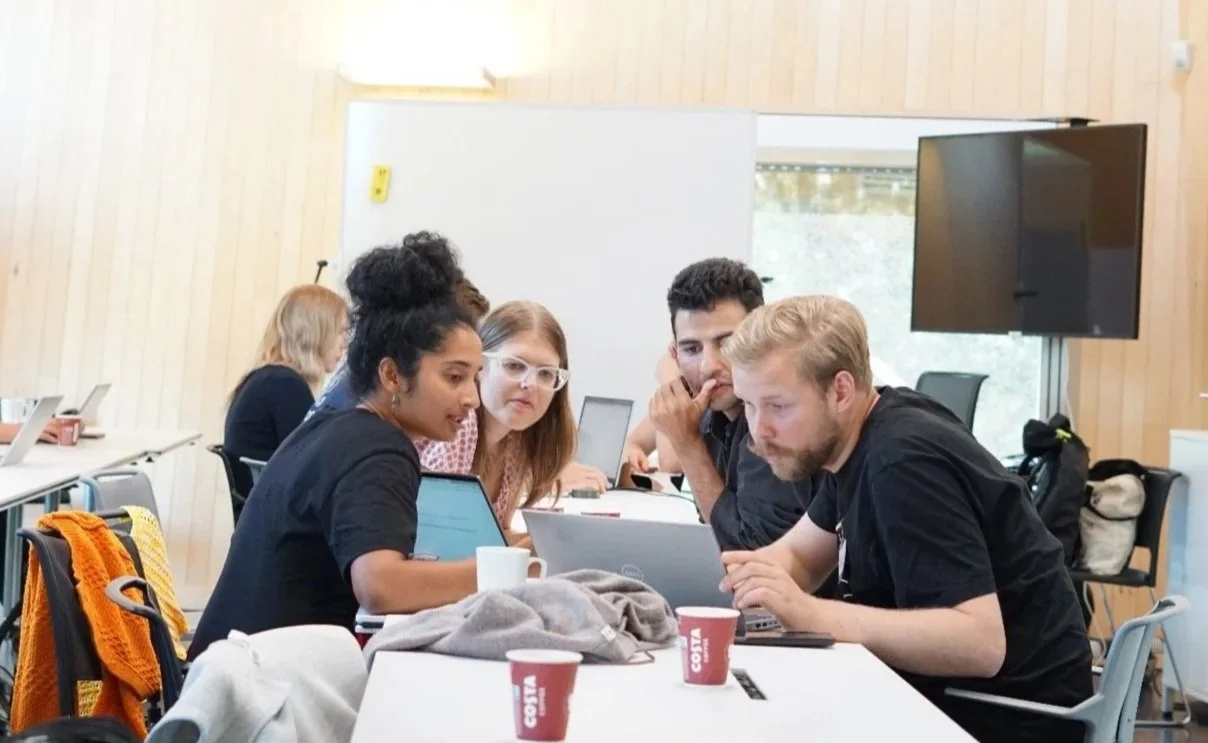
CCCI PhD Summer School 2025: The importance of applied education to address rapid changes in the Arctic
From August 11 to 15, 16 students from Norway, Sweden and Finland met in Oslo for the NordForsk-funded Scenario Analyses Regarding Climate Change Hazards and Critical Infrastructure in the Arctic (CCCI) PhD summer school. This was the second edition of the CCCI PhD summer school and this year, it was organized by the Norwegian Meteorological Institute in collaboration with Arctic Frontiers via the URSA MAJOR project. The CCCI PhD summer school centred on providing an opportunity for students to develop scenario analyses and risk management strategies for extreme climate change-related hazards, focusing on their impacts on critical infrastructure and vital societal functions in the Nordic Arctic region. The CCCI PhD summer school was hosted by Dina Abdel-Fattah, PCAPS’ ICO Manager.

Meet the PCAPS SG: Machiel Lamers on understanding the safety and sustainability of environmental services in the polar regions
This month’s Meet the SG blog post features PCAPS SG member, Machiel Lamers. Machiel is an environmental sociologist fascinated by the mobile character of tourism activities in the polar regions, along with other activities like fisheries or science operations, and the ways in which their flexibility and agility can both be shaped through environmental information services as well as lead to sustainability and safety implications. Machiel has recently been appointed Professor in Tourism and Environmental Change at Wageningen University & Research in the Netherlands, where he focuses on the governance of sustainable tourism in some of the world's most fragile and remote destinations, including both polar regions.
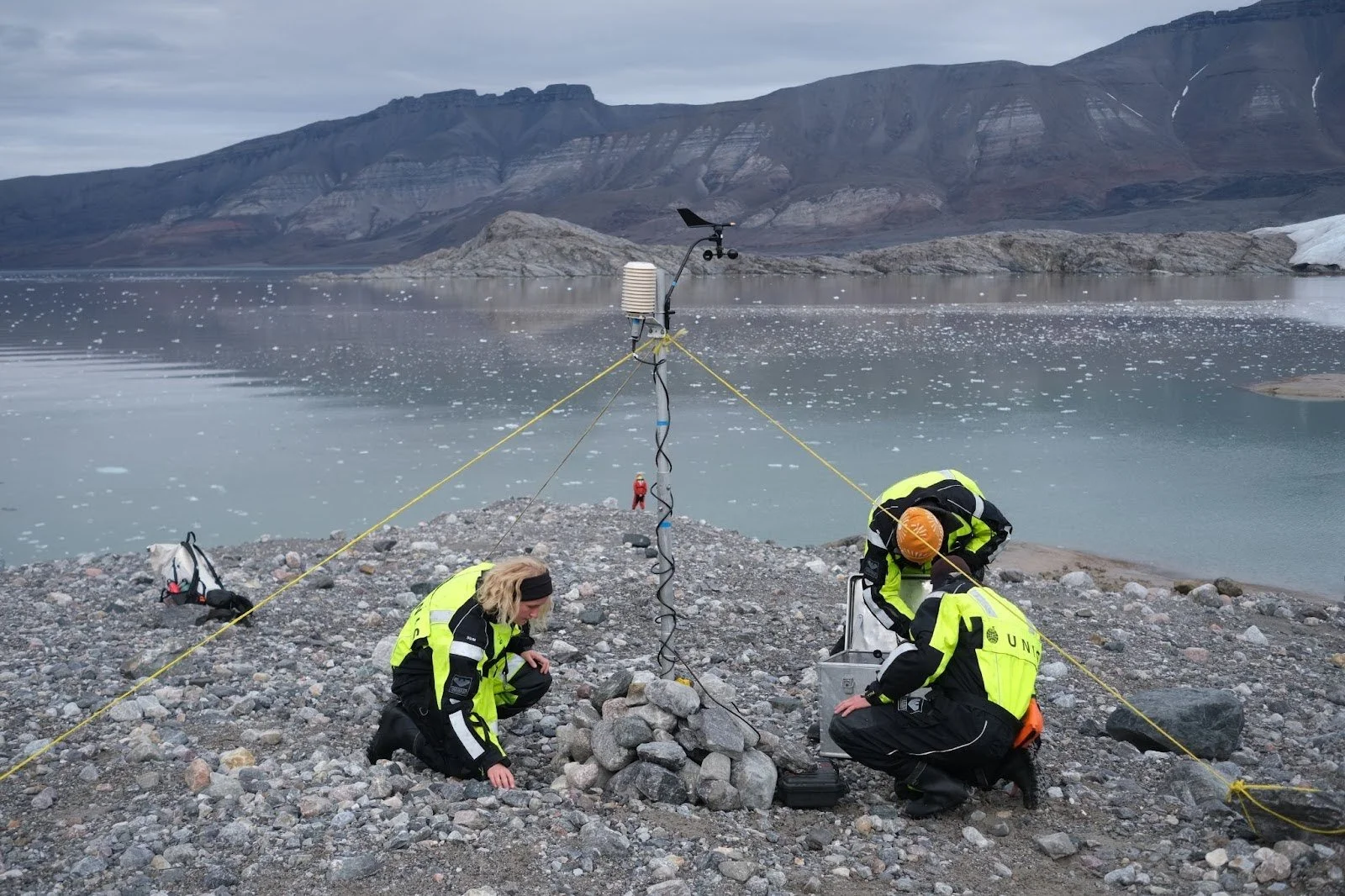
Tackling harassment in polar research - lessons from polar science worldwide
The polar regions are experiencing dramatic changes, with communities and ecosystems bearing the brunt of these transformational impacts. Though polar research has contributed significantly to a better understanding of our planet's changing climate, attention must also be paid to the historical roles and structures underpinning polar research itself, as well as the importance of safety in both the field and the workplace. Not only does harassment affect individual well-being - it also disrupts the scientific mission. PCAPS aims to help facilitate inclusivity of early career researchers and minorities in the field of polar science by helping elevate the discussion on important issues, such as harassment, that need to be addressed.
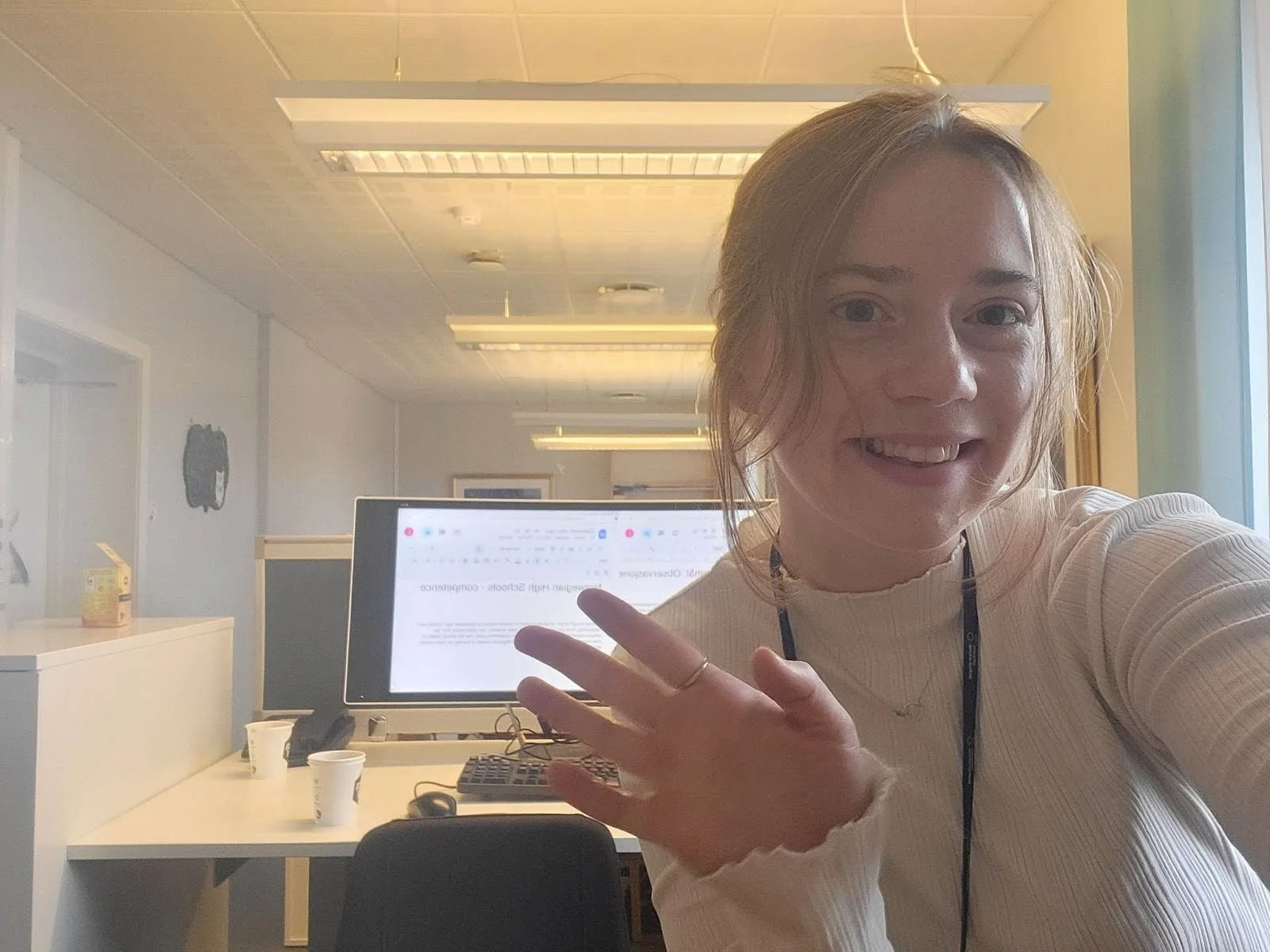
Update on PCAPS Comms summer project
During this Northern Hemisphere summer, our two PCAPS Communication Fellows, Linn Bolin Haakenstad and Amanda Skogjordet have been looking at the standard course objectives in the Norwegian high school curriculum, to see if there are potential opportunities for students to learn about polar research. Looking through all the course objectives, Linn and Amanda have made some interesting observations so far. The next step in the project will be interviewing teachers in Norwegian high schools to understand more if and how polar research is taught in their classrooms.
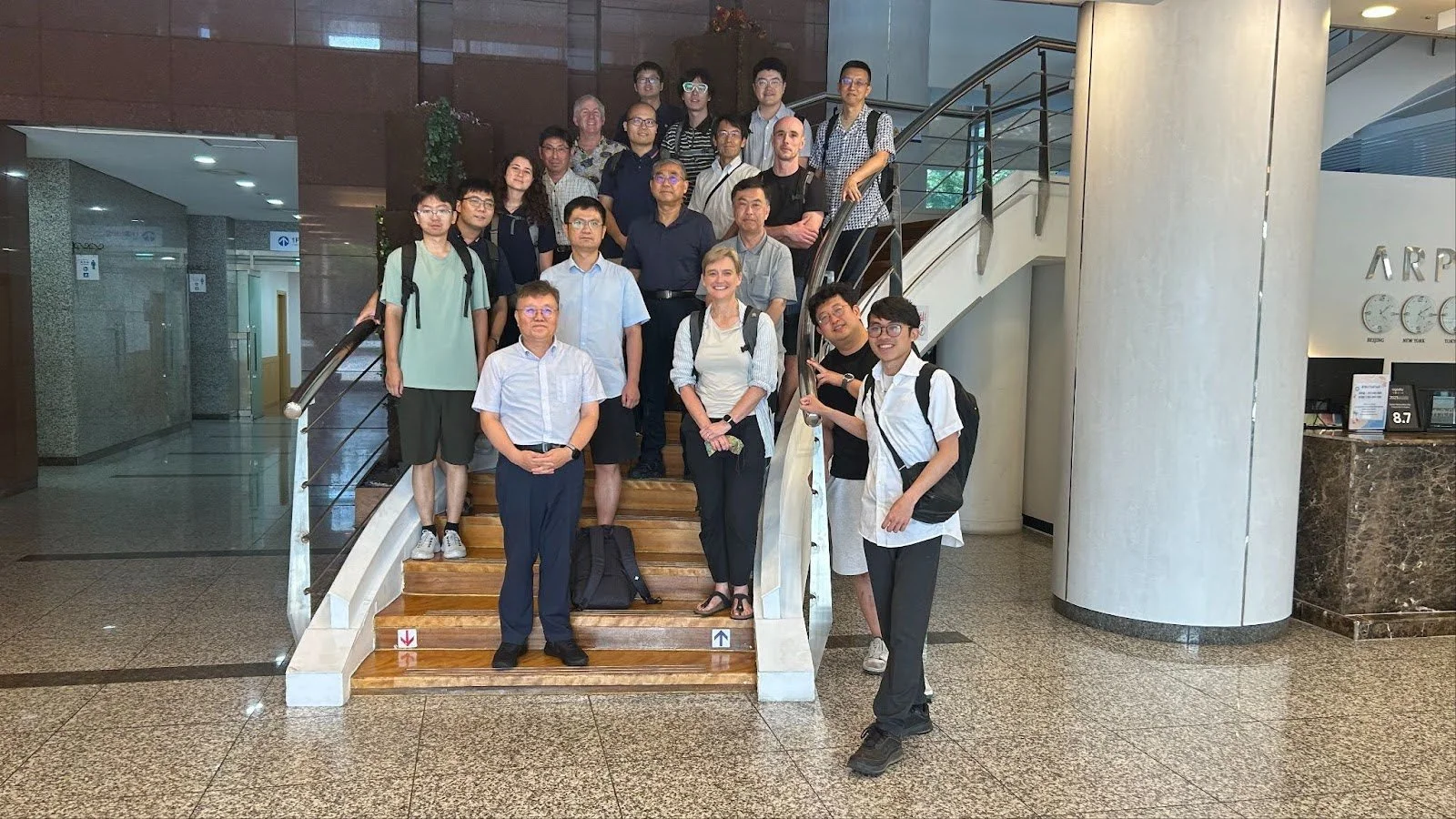
Reflections on polar predictability challenges from three events in Korea - July 2025
Polar predictability matters now more than ever. With record sea ice loss, extreme temperature swings, and increasing human activity in these regions, accurate forecasts affect human and maritime safety, ecosystem management, and global climate understanding. Three recent events held in Korea during 16–25 July—WAMC 2025, the AntClimNow Predictability Workshop, and “Advances in Sea Ice Forecasting and Modelling” sessions at BACO-25—provided fresh perspectives on these challenges. PCAPS steering group members Clare Eayrs (KOPRI) and Vicki Heinrich (BoM) actively engaged in these recent events.

Arctic PASSION: Implementing observations for societal needs
Arctic PASSION, a project funded through the Horizon 2020 European Union programme, is in its last year of activity. The objective of the project is co-creation and implementation of a coherent, integrated Arctic observing system, which attempts to close gaps in the present observing system. Improved polar observing systems is one of PCAPS’ objectives and the work of Arctic PASSON closely aligns with both the ambition and vision of PCAPS.
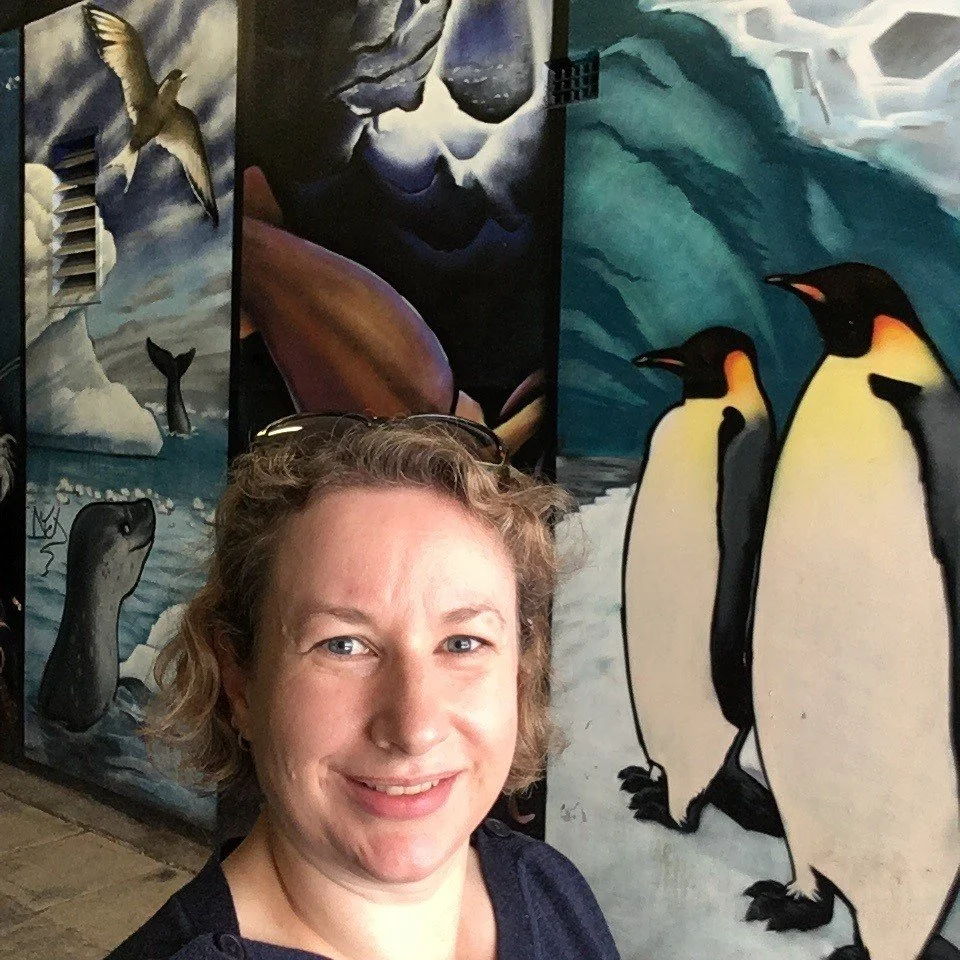
Meet the PCAPS SG: Reflections from PCAPS SG member Vicki Heinrich
This month’s “Meet the SG” blog post features Vicki Heinrich, who is a psychological scientist working as a Policy Advisor at the Bureau of Meteorology in Hobart, Australia. Vicki’s work contributes to interdisciplinary research examining the communication of weather information, warning messages, risk and uncertainty. Vicki previously worked for several years as a Senior Technical Officer Observer at Australia’s Antarctic and sub-Antarctic research stations and recently completed her psychology PhD, examining weather information use, risk perception and decision-making in Antarctic environments.
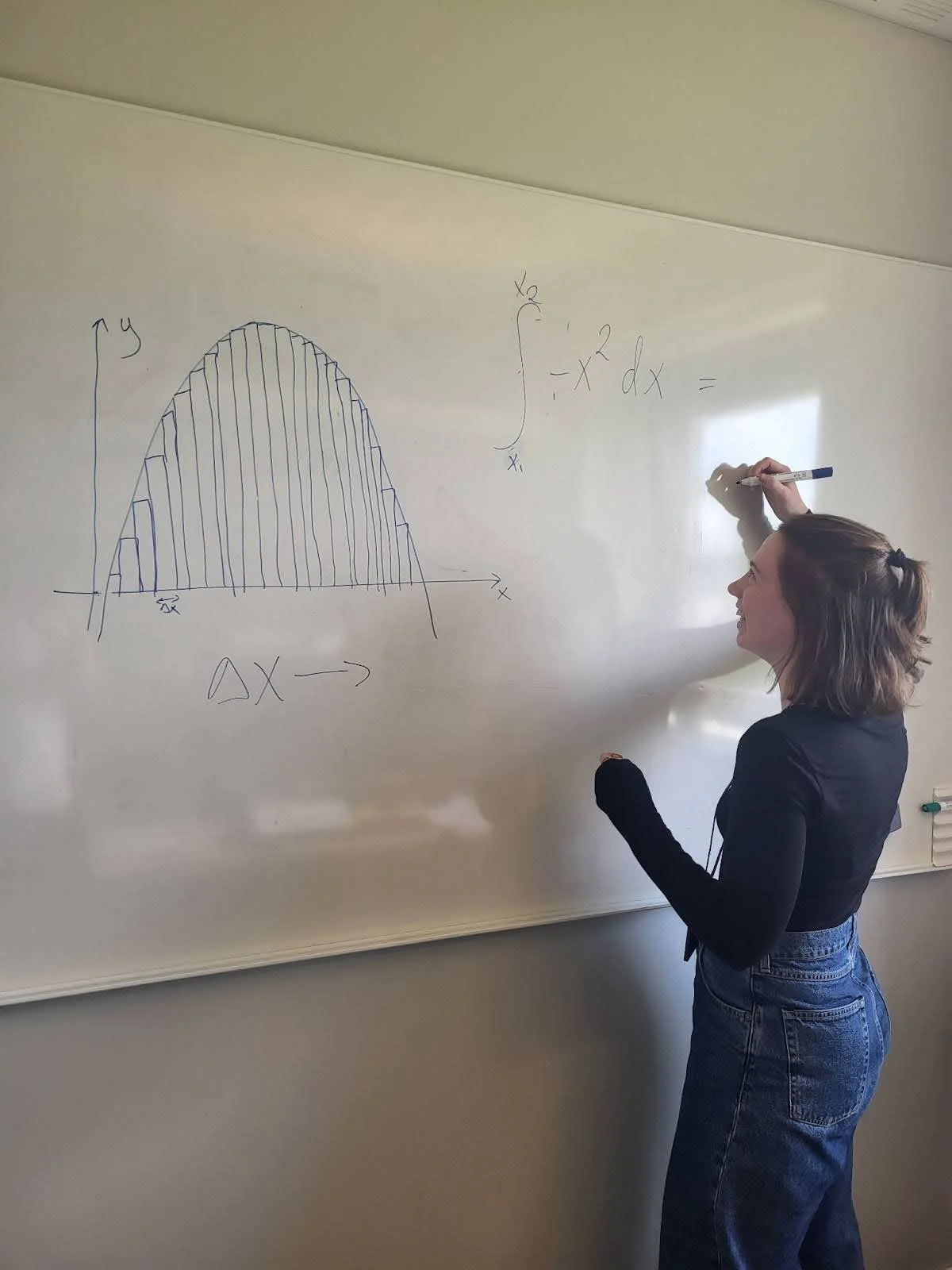
PCAPS Comms summer project: Do Norwegian high schoolers learn about polar research?
This Northern Hemisphere summer, our PCAPS Communication Fellows, Linn Bolin Haakenstad and Amanda Skogjordet, will investigate how polar research is taught across high schools in Norway. Norway is an Arctic country and we believe that it is important for students to learn about the consequences of climate change in the polar regions, especially considering 9% of the Norwegian population lives above the Arctic circle. The project will take place over two months, and we will see how polar research is taught in high schools all over the country.

Experiences from the FieldEX Field Safety and Preparedness Course
Field Instrumentation and Measurements in Cold Region Environments (FieldEX) is an exchange program for geoscience MSc and PhD students in Norway, Canada, USA and Japan. The aim of the program is to foster educational partnerships through short-term student exchanges focused on field techniques in cold region environments. This aligns with PCAPS’ Inclusivity Objective. Amanda Skogjordet, one of PCAPS’ Communication Fellows, participated in a recent FieldEX course in Norway.

